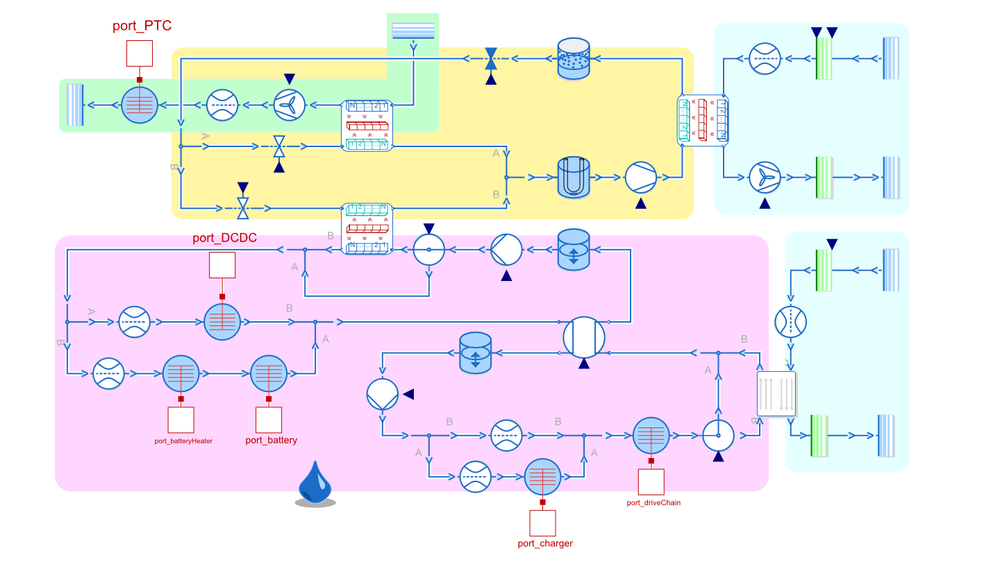Modelling
Nearly all research projects at the institute utilize, in one form or another, nonlinear dynamic models of the underlying physical system, described by algebraic, differential, partial differential and/or discrete equations. These models are used in all phases of the development cycle from requirements analysis to controller code generation and test. The overall goal of the institute is to provide technologies so that all necessary models
- can be built and used in a convenient and user-friendly way,
- are provided in a form such that models can be automatically transformed for the respective application, e.g., detailed or real-time simulation model, inverse model, LPV model (Linear Parameter Varying models), and
- can be distributed to partners.
Standardization
The institute leads the non-profit international Modelica Association (https://modelica.org/) that has more than 20 organizational and more than 120 individual members from Europe, North America, and Asia since it was founded in the year 2000. This organization standardizes and develops open source software technology and methods in the area of cyber–physical systems and systems engineering.
The institute initiated, contributed and contributes to the following standardization activities:




Modelica Language
A project to develop, standardize, and promote Modelica, a language to model and simulate multi-domain cyber physical systems in a convenient way. Modelica is in wide-spread use and supported by more as 10 tools (more details)
Modelica Libraries
A project to develop, maintain, and promote open source Modelica model libraries and model components in many domains based on standardized interface definitions (more details). The institute provides also other open source libraries.
fmi Functional Mock-up Interface
A standard that defines a container and interface to exchange dynamic simulation models using a combination of XML files, binaries, and C code. FMI is in wide-spread use and supported by more as 180 tools
(fmi-standard.org)
efmi Functional Mock-up Interface for embedded systems
A standard to seamlessly integrate physics design models of systems with their electronic controls development – compatible to the fmi standard (efmi-standard.org)
Robust modelling of Thermofluid Systems
Thermal fluid systems are used to model, for example, power plants, building physics, and aircraft environmental control systems. When formulated in an object-oriented way as with the Modelica language, these systems have been notoriously difficult to solve because their common formulation can result in large non-linear equation systems. The numerical solution of these systems is neither certain nor efficient.
The institute has thus revisited the fundamental build-up of the equations for thermal fluid mechanics and derived a new and robust form suitable for object-oriented modelling. One idea is to always use dynamic momentum balances in the form of unsteady Bernoulli equations (instead of steady-state pressure drop equations) and use the approximation that the pressure drop equations are a function of steady-state pressure. The new formulation avoids the creation of any non-linear equation system in the first place and generates models that are both efficient and robust.
The new technique is provided by the institute for example with the free open source library ThermofluidStream. Designed to be easy to use and easy to adapt and enriched by a number of examples, this library can be used as basis for many different applications such as thermal management of electric cars, power plants, or building physics.

Commercial Modelica Libraries
The institute develops and maintains commercial Modelica libraries that are distributed by Dassault Systèmes and LTX Simulation GmbH.
Next Generation Modelling
The institute is developing with other partners next generation modelling capabilities, see for example the open source Modia project that is based on the Julia programming language and the article Modelling and Simulation of Physical Systems with Dynamically Changing Degrees of Freedom.
